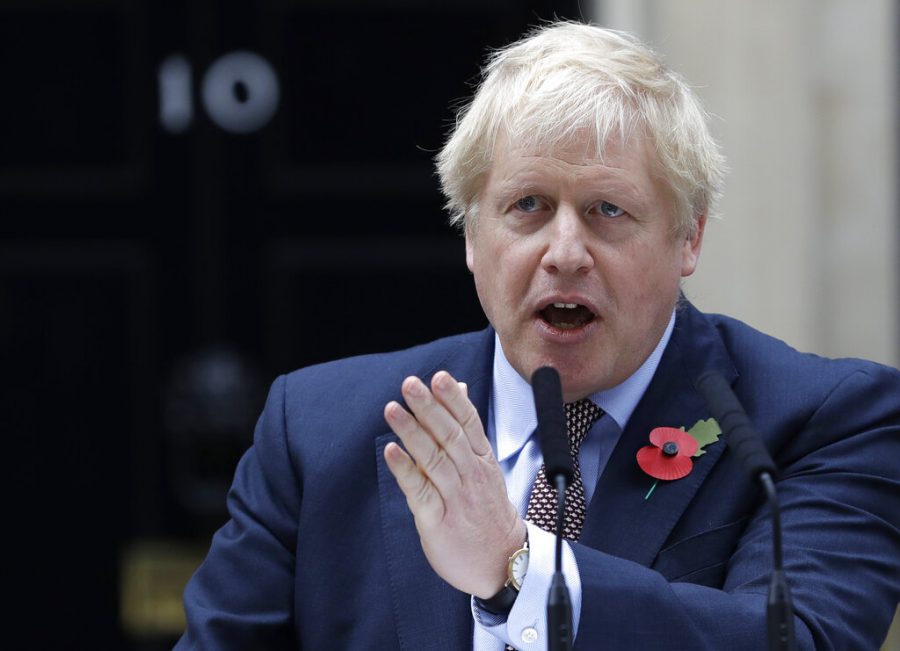Snap elections, but less confusing
New government – who dis?
Britain’s Prime Minister Boris Johnson speaks in Downing Street, London, on Wednesday, Nov. 6, 2019, ahead of the formal start of the General Election. Britain’s five-week election campaign officially began Wednesday, when Parliament was dissolved ahead of the Dec. 12 vote. (AP Photo/Kirsty Wigglesworth)
In light of the House of Commons decision to hold snap elections on December 12th, here’s a quick explanation of what that means for Boris Johnson, Brexit, and Britain as a whole.
What are snap elections? Do we have them in the U.S.?
Snap elections are a provision in most parliamentary systems that allows prime ministers to hold new general elections. When this happens, every member of parliament (including the prime minister) is up for reelection. The country must vote again, and the leader of whichever party wins the majority of seats becomes prime minister. If neither of the two major parties (Labour and Conservative) has a majority, the party with the most seats must try to form a coalition government with a smaller party.
Why would a prime minister hold a snap election?
Snap elections are threatened more often then held – they’re an extremely effective political bargaining tool. This is because when one is called, everyone’s seat is up for election, including the prime minister’s. Typically, snap elections are held when Parliament is gridlocked over a particular policy – and each party thinks they can win more seats than they currently have. Because snap elections require the approval of a ⅔ majority of Parliament, both parties risk embarrassment. The party in power may gain seats, but they risk losing their majority; if the minority party loses seats, they look foolish for voting in support of the snap election. A perfect example of this policy backfiring was in 2017, when then-prime minister Theresa May called a snap election, and her Conservative Party ended up losing seats.
How is a snap election triggered?
Prime ministers used to be able to call snap elections at any time, but the Fixed-Term Parliaments Act of 2011 set more specific guidelines for general elections (every five years) and required a ⅔ majority of Parliament to approve a snap election.
So… what will happen to Brexit?
No one knows. Boris Johnson was granted a third extension by the EU to get his plan approved by Parliament; he has until January 31st to do so. If the Conservative party gains seats in the December 12th snap election, Johnson’s plan will most likely pass. If the Labour Party wins a majority, they plan to negotiate a new Brexit deal with the EU and hold a second referendum (nationwide yes-or-no vote), which would allow the people to decide whether to take the deal or stay in the EU.


